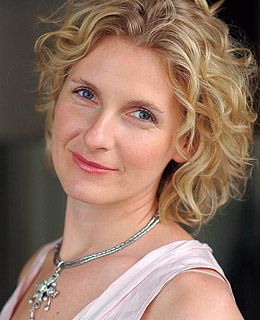Relationships
Elizabeth Gilbert: Beyond Eat, Pray, Love
Bestselling author's insatiable curiosity fuels big sweeping 19th-century novel
Posted November 6, 2013
Elizabeth Gilbert’s sweeping historical fiction novel, The Signature of All Things, was born out of her passion for gardening, her love of research, and a desire to write the kind of book she loves reading. Here’s more from prolific author:
Jennifer Haupt: How did this story begin for you?
Elizabeth Gilbert: 

Elizabeth Gilbert:
I discovered a beautiful old book in my grandfather’s attic that was a compilation of Captain Cook’s travels. That got me excited about Captain Cook and I knew that I wanted to start the novel with him.
JH: How long did it take you to write this novel, and what kept you going?
EG: It took me four years to write, but that’s not including the long period of slow incubation when ideas are sort of colliding around in your head and you’re finding inspiration. I consider that part of the writing process even though it can occur for years before you put anything on paper. And then for this book there was a lot of research. I probably spent three of those four years digging up information on everything from nineteenth century botany, to the beginnings of the pharmaceutical trade, to missionary life, to nineteenth century pornography, the evolution debate—a lot!
As for the purpose of this book, for me it was a celebration. I had already accomplished the biggest homework assignment of my life, which is that I’d managed to write a book after Eat, Pray, Love. That was really daunting! There were moments where I pondered whether I should do it all. I knew there would be such great expectations and criticisms, and preconceived notions. But I also knew that if I never wrote again, it would be a huge loss for me. After Committed was out in the world I had never felt so free in my entire life as a writer. I wanted to take on the biggest and most ambitious book I could possibly take on for the most joyful of reasons: I wanted to write the kind of book that I’ve always loved to read.
JH: You’ve said that you wanted to write a book about a woman whose life is saved by her work. Alma’s life is saved by her love of botany. Has being a writer saved your life in any sense?
EG: Saved it and defined it. The struggle for meaning and purpose is a big part of the human experience. I’m lucky enough to be alive in a moment in time where a girl can dream of being a novelist. And I’m lucky enough to have had a family who provided no obstacles to obtaining that dream. From earliest memory, that’s all I’ve ever wanted to be, and it’s been this thread of meaning that’s woven my life together. When other parts of my life have unraveled, the writing seemed to always be very steadfast. I know that I have a very different path than some other writers, for whom writing has produced nothing but suffering. That always makes me wonder why they want to keep doing it, instead of a vocation they love and enjoy! For me, it pleasurable. Even when it’s difficult and frustrating and puzzling, it still brings me meaning. And I still find it more interesting than just about anything else in the world.
JH: Do you have a happiness jar these days?
EG:

EG:
I have a giant apothecary jar and nearly every day, at the end of the day, I write down the best moment on a scrap of paper and put it in there. It’s a wonderful gratitude exercise. It’s a remarkable thing for me to go back and pull out of that jar evidence of those happy moments. I marvel at how I would have forgotten these moments. They’re never major moments, never the rock star moments in life. Instead they’re the quiet moments that filled me with an unexpected sense of pleasure. They’re so easily overlooked and I love that I have them recorded for myself.
JH: What’s your One True Thing that you learned from Alma? Henry?
EG: My one true thing I learned from Alma is to honor the vocation. Work isn’t a strong enough or passionate enough work to describe how she feels about the botanical world. She has a vocation and she honors it for her entire life. It’s what gives her resilience and endurance, and human connection. Whatever else may be going on, she never neglects her passion for her vocation. That’s her super power.
And my one true thing I learned from Henry is, don’t let the bastards get you down. He’s a creature of pure ambition. Someone said that he reminded them of Gatsby. I said, yeah but he’s not tragic! He does get everything he wants in the world—despite how he may be underestimated by others. Henry’s stubborn refusal to stop trying is a truth that I enjoyed writing about and I humbly enjoy living.
Elizabeth Gilbert is the #1 New York Times bestselling author of Eat, Pray, Love, as well as the short story collection, Pilgrims—a finalist for the PEN/Hemingway Award, and winner of the 1999 John C. Zacharis First Book Award from Ploughshares. A Pushcart Prize winner and National Magazine Award-nominated journalist, she works as writer-at-large for GQ. Her journalism has been published in Harper's Bazaar, Spin, and The New York Times Magazine, and her stories have appeared in Esquire, Story, and the Paris Review.


